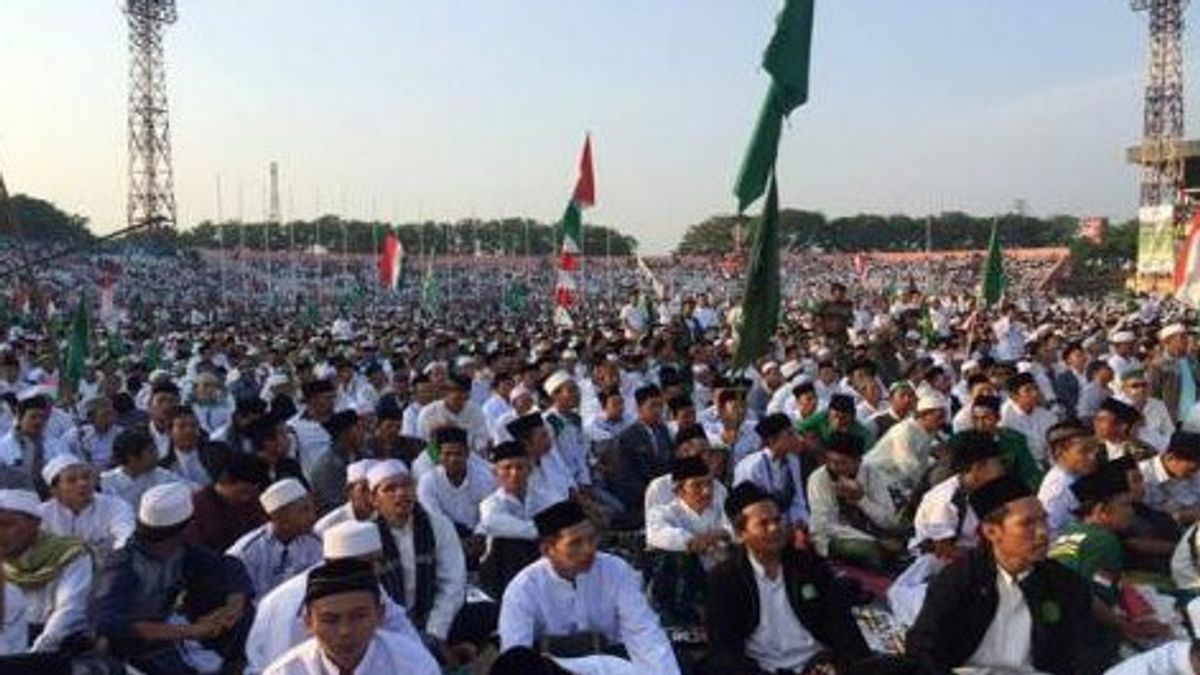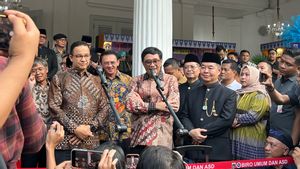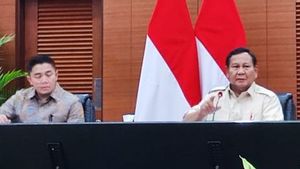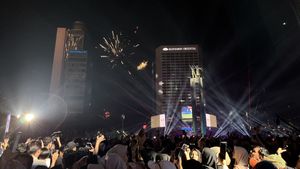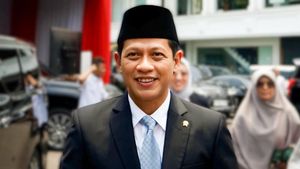JAKARTA History today, 22 years ago, April 29, 2001, the Executive Board of Nahdlatul Ulama (PBNU) perpetuated mass istigasah (prayer). This activity was able to bring tens of thousands of people to the Senayan East Parking, South Jakarta.
Mainly, the President of Indonesia who is in the midst of controversy, Abdurrahman Wahid (Gus Dur). Instead of being purely a religious activity, mass istigation is considered a political agenda. The istigasah was allegedly the'resistance' of PBNU to those who wanted Gus Dur to step down.
The rain of controversy accompanied the end of Gus Dur's reign. The charismatic Kiai often perpetuated policies that sparked the anger of the Indonesian people. He appeared to the general public with the desire to apologize for the massacre of PKI sympathizers in 1965-1966.
Moreover, Gus Dur seriously proposed that the MPRS Decree No XXV/1966 be removed from the PKI and the prohibition of the spread of the teachings of Marxism, Communism and Leninism be lifted immediately. This political step adds to Gus Dur's list of controversies.
Opinion also appears everywhere. Mainly from his own ranks. In fact, there are ministers who ask Gus Dur to immediately resign regularly. Moreover, after Gus Dur was deemed involved in the BUloggate andBruneigate scandals.
However, Gus Dur was considered reluctant to accept criticism. The DPR, which threw criticism at him, was completely reviled by Gus Dur. He also wanted to dissolve the DPR. The controversy put Gus Dur's political steps in a dangerous phase. He is threatened with stepping down because of it. His leadership is considered only to bring controversy, rather than benefits.
The nine months of government, President Gus Dur actually appeared as a person full of controversy, both in terms of speech and in terms of actions, it was felt that more confusion in society.
From various words made, for example, on a reactive occasion the president accused three of his ministers of being involved in corruption, collusion, and nepotism (KKN). Another opportunity, he wants to pardon former President Suharto, open up Israeli trade relations, remove five members of his cabinet, wanting to remove MPRS' provisions regarding the violations of the teachings of Marxism, Leninism, and Communism, and several other controversial remarks, written in Gus Dur's Political Journey book (2010).
Gus Dur's narrative of resignations has surfaced everywhere. Gus Dur was aware of the effort. However, he did not remain silent. He had stated that if it was overthrown, Jakarta would be filled with hundreds of thousands of supporters.
This shock was then proven by the role of the organization he had led by PBNU in mass istigasah in East Senayan Parking, South Jakarta on April 29, 2001. Instead of just holding an event to commemorate the Islamic New Year 1422 H, the celebration was considered too political.
The event was believed by the public as a show of strength to those who wanted Gus Dur to step down. The event was originally targeted to be attended by one million participants. Even though there were less than one million people who came.
Even though his intentions are great, istigasah is nothing but a political tool of the president and his supporters in the ongoing power struggle fight against his enemies. No wonder most political leaders reject this invitation to attend this mass prayer. The warning made by Abdurrahman Wahid's Cabinet that violence would arise if the DPR insisted on implementing it was heard as a threat rather than advice," wrote the Jakarta Post report quoted by Greg Barton in the book Biography Gus Dur (2003).
The English, Chinese, Japanese, Arabic, and French versions are automatically generated by the AI. So there may still be inaccuracies in translating, please always see Indonesian as our main language. (system supported by DigitalSiber.id)
